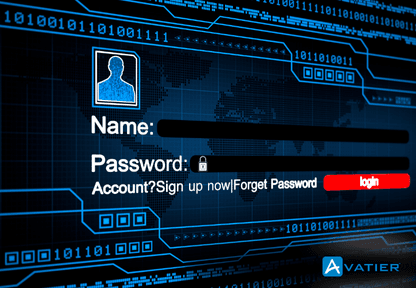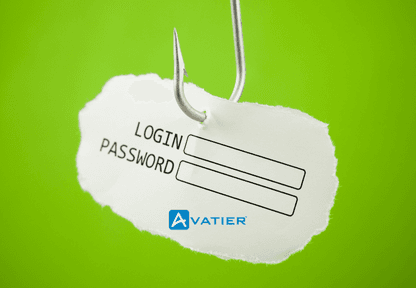July 8, 2025 • Mary Marshall
Social Login Integration: Balancing Convenience and Security in Modern Identity Management
Discover how to implement social login while maintaining enterprise-grade security. Learn best practices, and see Avatier’s solutions.

User experience and security often seem at odds with each other. Nowhere is this tension more evident than in the implementation of social login capabilities across enterprise environments. While users increasingly expect the same frictionless authentication experiences they enjoy in their consumer lives, organizations must carefully balance this convenience against rigorous security requirements.
According to research by Ping Identity, 86% of users report abandoning their registration process when faced with complex or lengthy authentication procedures, highlighting the critical importance of streamlined login experiences. Meanwhile, Okta’s 2023 State of Digital Identity report reveals that 92% of IT professionals are concerned about security risks associated with social login integration.
This article explores how forward-thinking organizations can implement social login strategies that satisfy both user convenience demands and enterprise security requirements—and how Avatier’s identity solutions provide the ideal framework for achieving this balance.
The Rise of Social Login in Enterprise Environments
Social login (also known as social sign-on) allows users to authenticate to applications and services using their existing credentials from social platforms like Google, Microsoft, Facebook, or LinkedIn. This approach eliminates the need to create and remember yet another username and password combination.
The benefits driving social login adoption include:
- Reduced friction: Users can access applications instantly without creating new accounts
- Decreased password fatigue: No additional credentials to remember
- Higher conversion rates: Fewer abandoned registrations due to simplified access
- Enriched user data: Access to consistent profile information from social providers
- Streamlined user management: Leveraging external identity providers reduces administrative overhead
For enterprise IT leaders, social login presents an opportunity to enhance user satisfaction while potentially reducing help desk costs associated with password resets. According to Avatier’s experience with enterprise clients, implementing comprehensive identity management solutions with social login capabilities can reduce password-related support tickets by up to 30%.
Security Considerations for Enterprise Social Login
Despite its convenience benefits, social login introduces several security considerations that organizations must address:
1. Identity Provider Reliability and Security
Not all social identity providers implement the same security standards. Critical questions include:
- How well does the provider protect credentials?
- What multi-factor authentication options do they support?
- How reliable is their service availability?
- What information is shared during authentication?
2. Over-Privileged Access Risks
Social login can potentially lead to over-privileged access if organizations don’t carefully control permission mapping between social identities and internal access rights. This requires sophisticated access governance capabilities to ensure proper authorization controls are maintained regardless of authentication method.
3. Account Takeover Vulnerabilities
If a user’s social account is compromised, attackers could potentially gain access to all connected applications. This amplifies the importance of layered security approaches, including strong multi-factor authentication integration with social login workflows.
4. Data Privacy and Compliance Challenges
Social login implementations must navigate complex regulatory requirements regarding data sharing and privacy. Organizations in regulated industries like healthcare, finance, government, and education face particular challenges aligning social login with compliance mandates such as HIPAA, GDPR, CCPA, and FERPA.
For educational institutions, FERPA compliance considerations are especially important when implementing social login to protect student data privacy.
Best Practices for Secure Social Login Implementation
To effectively balance convenience with security, organizations should adopt these proven best practices:
1. Implement Multi-Factor Authentication
Even with social login, strong MFA remains essential. According to Microsoft security research, implementing MFA can block 99.9% of account compromise attacks. Avatier’s multifactor integration capabilities allow organizations to maintain robust authentication requirements while still benefiting from social login convenience.
2. Apply Adaptive Authentication Controls
Not all access requests require the same level of security. Implement risk-based authentication that considers:
- User location and device
- Access request time and frequency
- Resource sensitivity
- Behavioral patterns and anomalies
This contextual approach allows for streamlined access to low-risk resources while applying stronger verification for sensitive systems or unusual activity patterns.
3. Maintain Alternative Authentication Options
Social login should complement rather than replace existing authentication methods. Users should have multiple secure ways to authenticate, particularly for critical systems or when social identity providers experience downtime.
4. Establish Comprehensive Identity Governance
Social login should integrate with your broader identity governance framework. This requires:
- Clear policies for mapping social identities to internal access rights
- Regular certification of access privileges regardless of authentication method
- Continuous monitoring for unusual authentication patterns
- Automated workflows for access revocation when needed
5. Carefully Select Supported Social Providers
Not all social identity providers are created equal. Evaluate potential providers based on:
- Security standards and practices
- Authentication options (including MFA support)
- Service reliability history
- User adoption rates within your organization
- Data sharing and privacy policies
Most organizations benefit from supporting a limited number of enterprise-grade providers like Microsoft, Google, and LinkedIn rather than attempting to support every available social platform.
Implementing Social Login with Avatier’s Identity Solutions
Avatier’s comprehensive identity management platform provides the ideal foundation for organizations seeking to implement secure social login capabilities. Key advantages include:
1. Unified Identity Lifecycle Management
Avatier’s Identity Anywhere Lifecycle Management solution enables organizations to maintain a single source of truth for identity data while supporting diverse authentication methods, including social login. This ensures consistent governance regardless of how users authenticate.
2. Flexible Authentication Framework
Avatier’s platform supports multiple authentication methods and identity providers simultaneously, allowing organizations to implement social login alongside traditional methods without security compromises. The platform’s SSO capabilities seamlessly integrate with social identity providers while maintaining enterprise security controls.
3. Comprehensive Access Governance
Even with social login, organizations must maintain rigorous access governance. Avatier’s solution provides continuous monitoring, certification, and policy enforcement to prevent inappropriate access regardless of authentication method.
4. Industry-Specific Compliance Support
Avatier offers tailored solutions for regulated industries, ensuring social login implementations align with specific compliance requirements:
- Healthcare: HIPAA-compliant identity management
- Financial services: SOX and GLBA compliance support
- Government: FISMA, FIPS 200 & NIST SP 800-53 compliance
- Education: FERPA-compliant identity solutions
5. Advanced Risk Analytics
Avatier’s identity analytics capabilities help organizations identify and respond to potential security risks associated with social login, including unusual authentication patterns or potential account compromise attempts.
Real-World Success: How Organizations Balance Convenience and Security
Case Study: Global Manufacturing Company
A leading manufacturing organization implemented Avatier’s identity solutions to support social login for their contractor and partner portal. By integrating Microsoft and Google authentication options while maintaining strong governance controls, they achieved:
- 65% reduction in account creation time for external collaborators
- 40% decrease in password reset support tickets
- Improved user satisfaction scores
- Maintained compliance with industry security standards
- Enhanced visibility into external user access
The key to their success was implementing social login within a comprehensive identity framework that maintained strong governance controls rather than treating it as a standalone authentication method.
Common Implementation Pitfalls to Avoid
Organizations implementing social login should be aware of these common challenges:
1. Inadequate Session Management
Social login doesn’t eliminate the need for proper session management. Implement appropriate timeouts, reauthentication requirements for sensitive actions, and secure token handling.
2. Overlooking Account Linking Complexity
Users may access applications through different social identities at different times. Robust account linking capabilities are essential to prevent duplicate accounts and fragmented access.
3. Neglecting Privacy Implications
Be transparent about what information is collected during social authentication and how it will be used. Implement clear privacy notices and data handling practices to maintain user trust.
4. Failing to Plan for Identity Provider Changes
Social platforms regularly update their authentication APIs and data sharing policies. Organizations must monitor these changes and adapt their implementations accordingly.
The Future of Social Login in Enterprise Identity Management
As identity management continues to evolve, several trends will shape social login implementation:
1. Passwordless Authentication Evolution
The industry is moving toward truly passwordless experiences that combine social identity verification with biometrics and device-based authentication. This approach promises both enhanced security and improved user experience.
2. Increased Focus on Identity Verification
Simple knowledge-based authentication is increasingly inadequate. Future social login implementations will incorporate stronger identity proofing components to verify users are who they claim to be.
3. Decentralized Identity Integration
Emerging decentralized identity standards may eventually complement or replace traditional social login approaches, giving users more control over their identity information while providing organizations with stronger verification.
Conclusion: Finding the Right Balance for Your Organization
Social login offers significant user experience benefits, but successful implementation requires a thoughtful approach that addresses security, compliance, and governance requirements. By implementing social login within a comprehensive identity management framework like Avatier’s solutions, organizations can achieve the optimal balance between convenience and security.
The most successful implementations start with clear objectives, carefully selected identity providers, and strong governance controls—all integrated within a unified identity management approach that maintains security and compliance regardless of authentication method.
To learn more about implementing secure social login capabilities within your organization’s identity ecosystem, explore Avatier’s identity management solutions or contact our team for a personalized consultation.









